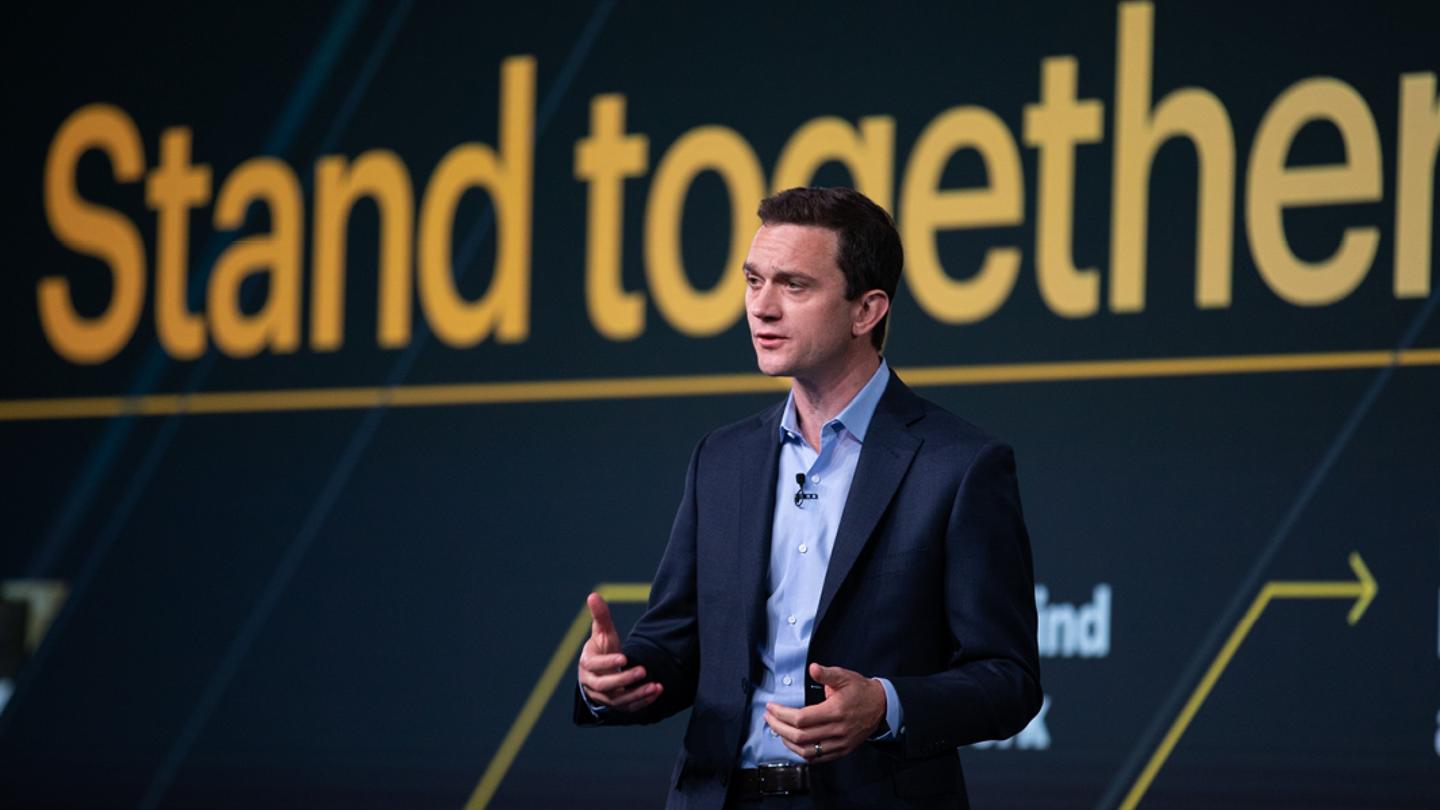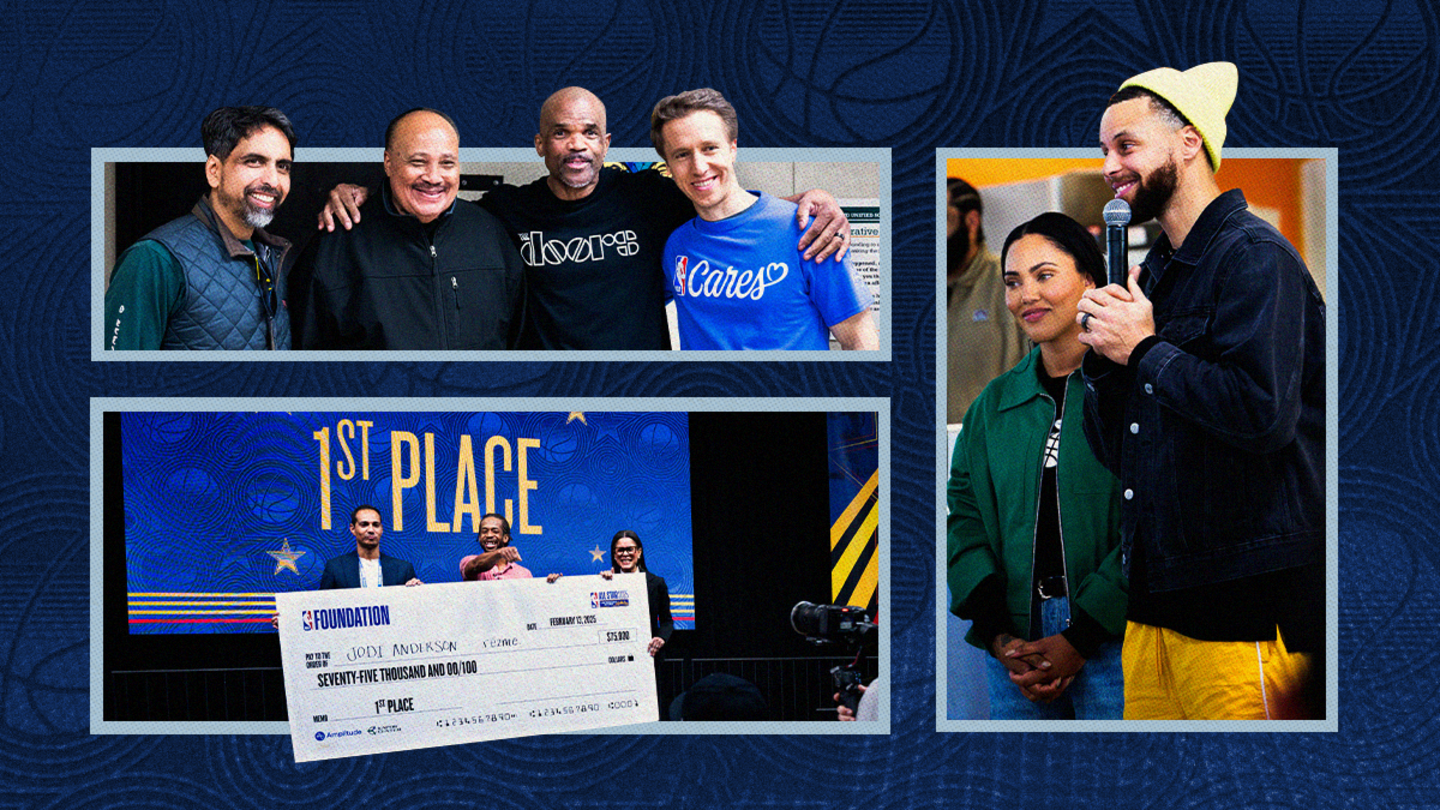Stand Together CEO Brian Hooks recently joined a group of philanthropic leaders at the Urban Institute for a panel discussion on how innovative philanthropic leaders are pioneering new giving strategies on public advocacy.
Brian Hooks participated alongside Melanca Clark, president and CEO of the Hudson-Webber Foundation; Kelli Rhee, president and CEO of Arnold Ventures; and Mark Rigdon, deputy director of state and local government relations for The Bill and Melinda Gates Foundation.
Brian shared how Stand Together's comprehensive strategy—which includes investments in education, business, communities, and government—is based on empowering social entrepreneurs to solve our country's biggest problems from the bottom up. He also discussed how philanthropies can build diverse coalitions in the public policy sphere that bring people together based on shared values rather than continue the traditional partisan approach that pits people against one another and makes it nearly impossible to make progress.
Phil Buchanan, president of the Center for Effective Philanthropy (CEP), moderated the conversation. Click here to watch the full discussion.
Buchanan: What is your approach to policy advocacy?
Hooks: One of the things that we take to heart is that the problems we're addressing as a philanthropy, as Stand Together, are problems that are holding people back in many different ways across society. And so, while policy has an important role to play, it can't just be about policy. I think there's a risk that we over-index for the importance of public policy in thinking about what philanthropy can do to help empower people to overcome the barriers that are holding people back.
I describe our approach as comprehensive. We want to keep in mind the role that public policy plays in problems that are as complex as persistent poverty, or mass incarceration, or economic opportunity. As we approach them, we have to recognize that none have a single solution, and none of them will be solved by policy advocacy on its own.
So, thinking about the role that policy plays in that overall equation, we look at: what are the key areas of society that we ought to be investing in and partnering with people to make the greatest difference in helping people to improve their lives.
We've got a fairly simple way of thinking about this, and we've found it to be pretty effective. Take an example like criminal justice reform: absolutely, you've got to change the laws. But if that's where we stop, and we celebrate, we've failed. The problems of criminal justice reform are society wide. And so, while we advocate for policies like the First Step Act in a coalition with a diverse groups of organizations and individuals, we also say, look, once people get out of jail, we need to be investing in nonprofits, community organizations, to help ensure that they find a successful path in life.
But that's not enough, either, right? So, the business community has a critical role to play. And I think philanthropy can help to rally the business community. Many of the people that sit on these small boards have standing in the business community. So, for instance, we have a partnership with Richard Branson and the Society for Human Resource Management to help people who are returning from prison to become employed, because we know that's the most likely way that they'll stay out of prison, but, more importantly, find a successful path in their lives.
And then we think about the role that education can play in this, as well. And so, most of what we do, and certainly what the Charles Koch Foundation does, is invest in education. You take a project like the one that we support at Arizona State University, so that we're not reinventing the wheel every time we want to reform the criminal justice system.
So, we describe our approach as comprehensive and we want to make sure that for whatever challenge, whatever barrier we're trying to address, we're bringing the right investments to the table to increase the likelihood, not just that it will succeed in the short-term, but that success will be sustained over the long-term.
Who's doing the policy advocacy work? Are you supporting nonprofits to do it? Is it a mix?
The framework that we use is we want to bring the capital to the table that is most useful to the groups or individuals that we're supporting. Understand that for almost every single issue that we address, the groups that we're supporting are the experts and we're not.
Let's not ask them to conform to our structure. Let's figure out how we can be most supportive of them.
I attribute (our) effectiveness to our model that allows us to bring the right capital to the table for the right opportunity, but always with an eye toward empowering people best situated to understand the situation and advocate for the right policy.
You've advocated for more of a focus on partnership, not partisanship. Is that naïve?
There's a reason we come back to criminal justice reform because up until about 18 months ago, that was a fair question on criminal justice reform. For 25 years, this was an impossible issue, so it was naive to be engaging on it, and then all of a sudden it wasn't. Now there's a movement to do even more. We need to do a whole lot more on criminal justice reform as people know.
I'll give you the second and the third.
I think immigration is absolutely right for this kind of cooperation. This is an issue that we are very engaged on right now and while the extremes are still characterizing the surface of the conversation, there is a ton of energy on this issue by people of all different perspectives and ideologies who want the same thing, which is a reasonable approach to immigration: more people who can come to contribute and secure borders.
No reason why we can't have both of those things. 80% of the American people agree on it. Philanthropy, I think, has an opportunity to bring those voices to the fore, so we don't let the 5% of the extremes characterize it.
I think foreign policy is another issue where for a long time, we've had a consensus.
Now we're not presuming to know the answer. Just like with criminal justice reform, had we come to the table and said, "The First Step Act or the highway?" We wouldn't have gotten anywhere but we said, "Hey, let's figure out how to do something different."
And so, I don't think it's naïve. I think it is new, and that's scary to people who are entrenched in the current system. But that's something that I think philanthropy can help to shake up. Let's take some risks to push the boundaries.
What advice about policy advocacy would you give to someone working to establish a foundation?
I think this focus on humility, which is a word that's come up here a lot, is so important, but it's not really the way that philanthropy has been wired for a long time. I think (we should) focus on experimenting but be very intentional and respectful about how we think about experimenting in a social world because we are talking about peoples' lives and the opportunity to help people improve, and when you miss that opportunity, that's a big deal.
But we should structure that learning and share that knowledge, which, again, is not something that historically is the norm in the philanthropic community. We shouldn't make the same mistake, right? We should make new ones. And you should learn from our mistakes, and we should learn from yours. And I think you're seeing a little bit more of that.
I would say to anybody that's coming into this field, lean into that kind of trend. Take more risks but do it in the spirit of openness and all of us being in this together and learning.
How do you know whether you're having any success? What are the metrics you use?
There are certain things that we can know, but the most important way that we'll know is by talking to the people who are actually doing the work and then ultimately the people who are benefiting from the work. And so, the answer to your question (the metric) has to be an inclusive one. And it has to be, I think, an iterative one.
One of the things that's critical here is to establish a dialogue with a diversity of voices. That diversity is going to look different on different issues.
How do you think about partnering with other funders?
It is essential to what we do. Stand Together, as a philanthropic community, works with 700 individuals who are partnering with us. That enables us to support thousands of social entrepreneurs who are working to find new and better ways to solve problems in society. So, everything we do is in partnership.
***
Learn more about Stand Together's efforts to improve public policy and explore ways you can partner with us.




